There are many challenges in the power industry that both homes and businesses in Nigeria have to navigate. The main challenge is that Nigeria does not have a reliable, consistent supply of electricity. However, before companies can provide solutions to this issue, they must fully understand the scope of the problem, which includes becoming knowledgeable about how on-grid electricity and the overall power system operates.
The on-grid sector is broken into three distinct segments: generation, transmission, and distribution. In addition to the segments, there are key power industry players that are incredibly influential. These key players are the Nigeria Bulk Electricity Trader (NBET), System Operator (SO), and the Nigeria Electricity Regulatory Commission (NERC).
Now that you have a better understanding of how the Nigerian power industry is organized and who the key players are, we can discuss how these entities interact and influence said industry.

Generation Companies (GENCOs)
Generation companies are privately owned with minority shares owned by the Federal Government of Nigeria. They produce electrical energy in bulk using primarily hydro sources, which is usually low during the dry season (i.e., between November and April). The other major source of electricity generation is from thermal sources. The thermal energy used is primarily natural gas and, unfortunately, sourcing is sometimes disrupted by gas pipeline vandalism and poor infrastructure.
Therefore there is the argument to be made for both private and government investment in adequate gas infrastructure across the country. This is evident in the Dangote gas pipeline project being executed in Lagos. The result of this would be a higher generation capacity with uninterrupted gas supply.
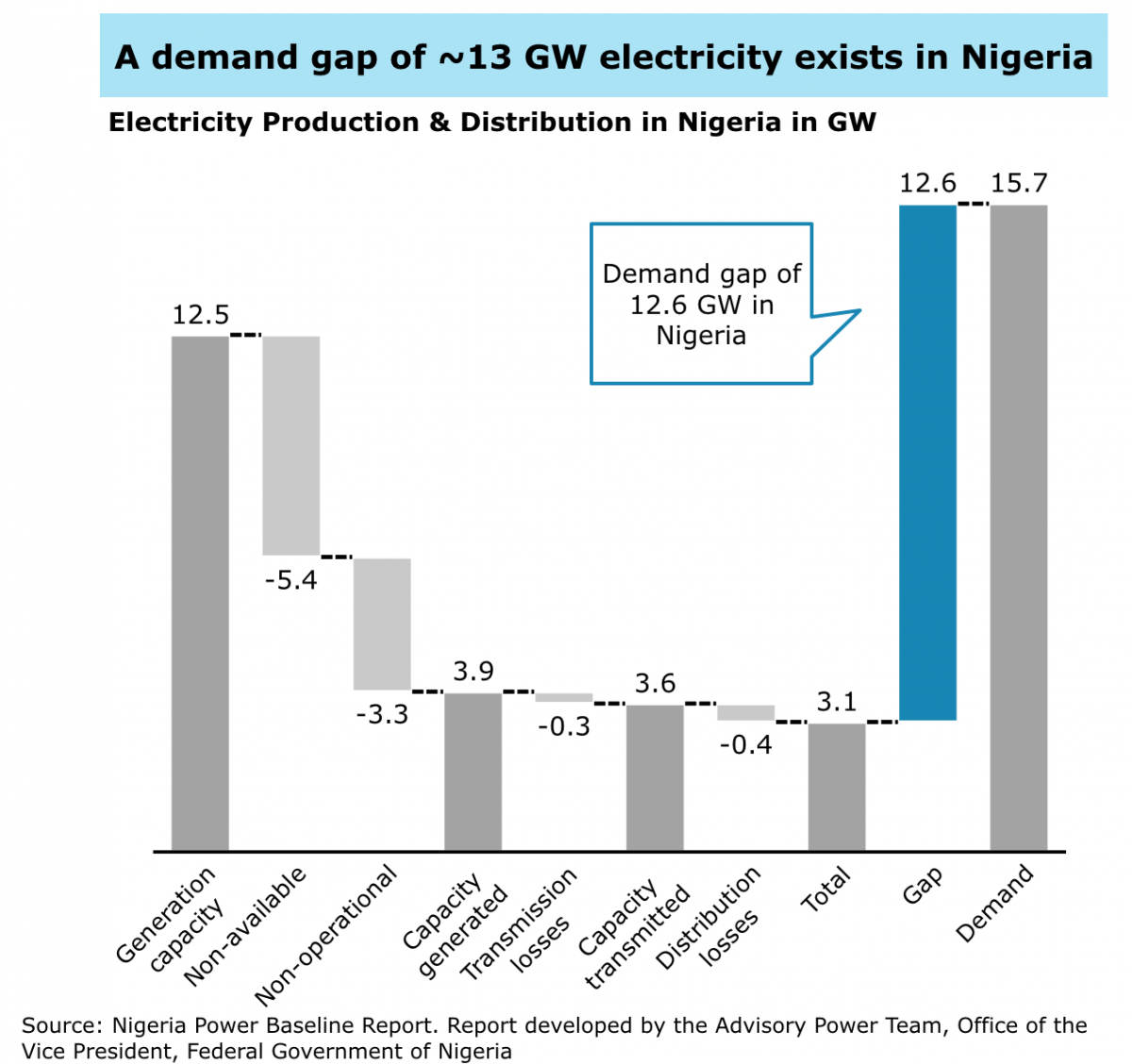
Transmission Companies (TRANSCOs)
There is only one transmission company in Nigeria, which is wholly owned by the Federal Government of Nigeria but managed through concession by the private sector. The transmission company takes electrical power from the generation companies and “transmits” it throughout the country on a high-voltage bus. The high voltage is needed to reduce electrical losses when moving power across long distances.
The current transmission infrastructure has the capacity to transmit 7,500 MW of electricity, even though Nigeria has a demand of 88,000 MW. Ill-defined land use rights make it difficult to lay new transmission lines across the country to service demand. Furthermore, there is inadequate investment on behalf of the government to ensure an increase in transmission capacity.
Distribution Companies (DISCOs)
The distribution companies are privately owned with the Federal Government of Nigeria having minority shares accounting for about 40%. In summation, these companies collect power from the transmission company and “distribute” it to the end consumer. Electricity flows from the GENCOs to the TRANSCO to the DISCOs.
Now that we have discussed the three main segments of the power industry and the flow of energy between them, it is important to understand how money flows between these entities. In this instance, money flows in the opposite direction of electricity, in that consumers pay the DISCOs, which in turn pay TRANSCO and the GENCOs.
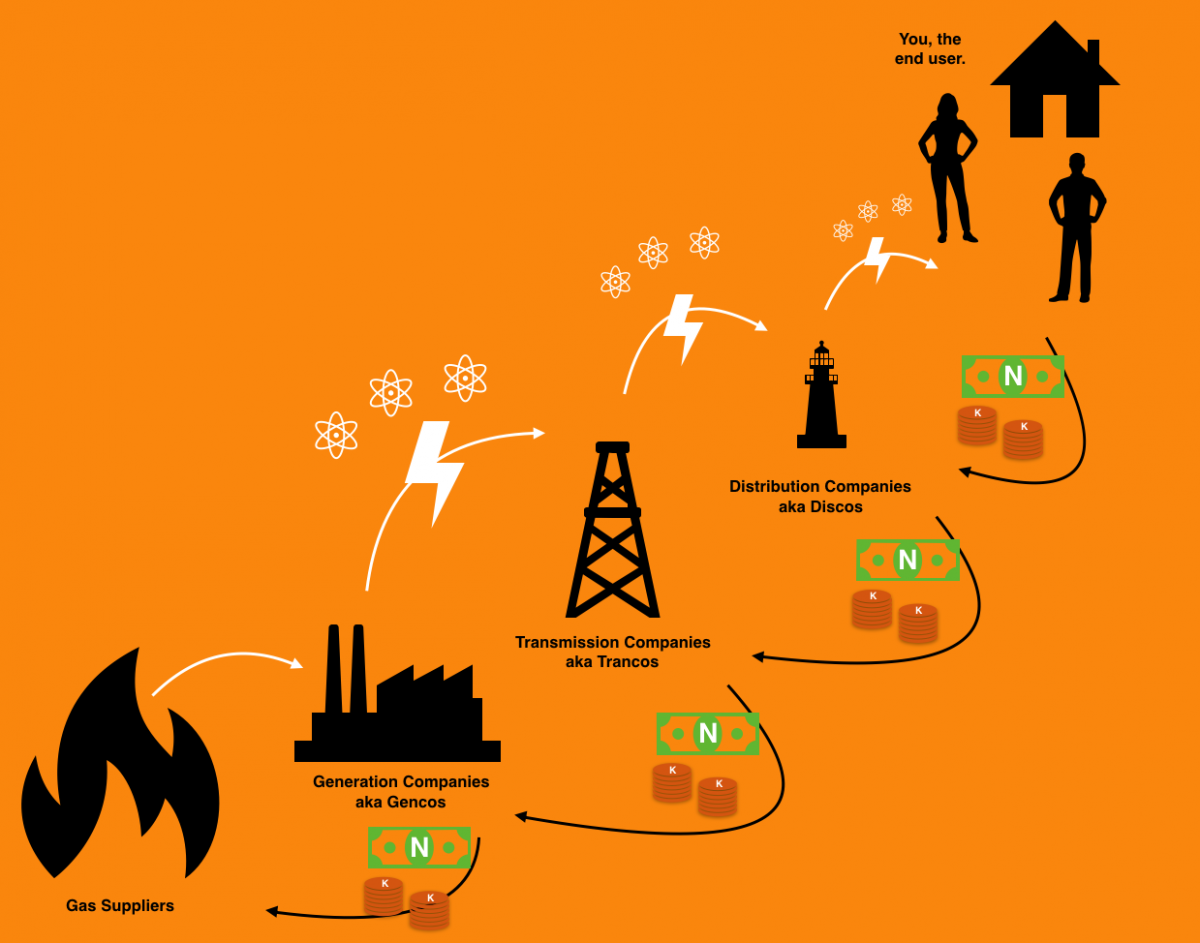
In an effort to balance interim cash flow items, the Nigeria Bulk Electricity Trader (NBET) was created.
Nigeria Bulk Electricity Trader (NBET)
Unfortunately, due to low tariff levels and electricity theft, not enough revenue is generated by customers to pay for DISCO operations and services provided by TRANSCO and GENCO. Therefore, NBET ends up paying these entities through facilities such as bank guarantees.
NBET is meant to be a temporary company created to aid Nigeria’s electricity market and ensure adequate cash flow. Currently, NBET pays GENCOs and TRANSCOs directly and collects revenue from DISCOs. In the future, the DISCOs will pay the GENCOs and TRANSCOs directly.
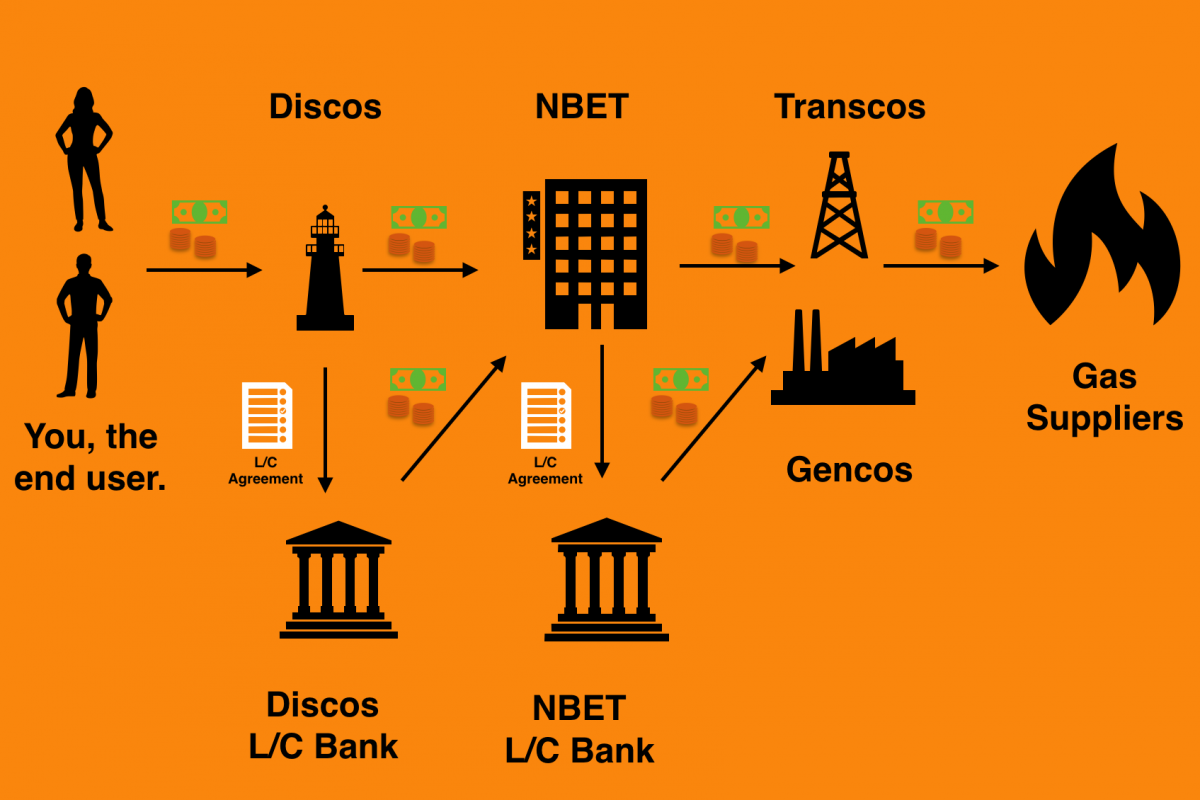
System Operator (SO)
While NBET helps balance cash flow, SO helps balance the flow of electricity, which is typically referred to as ancillary services. These services are crucial to ensuring that the power being generated matches the power that is being consumed. Essentially, SO is responsible for determining who gets electricity when the power generated does not meet demand.
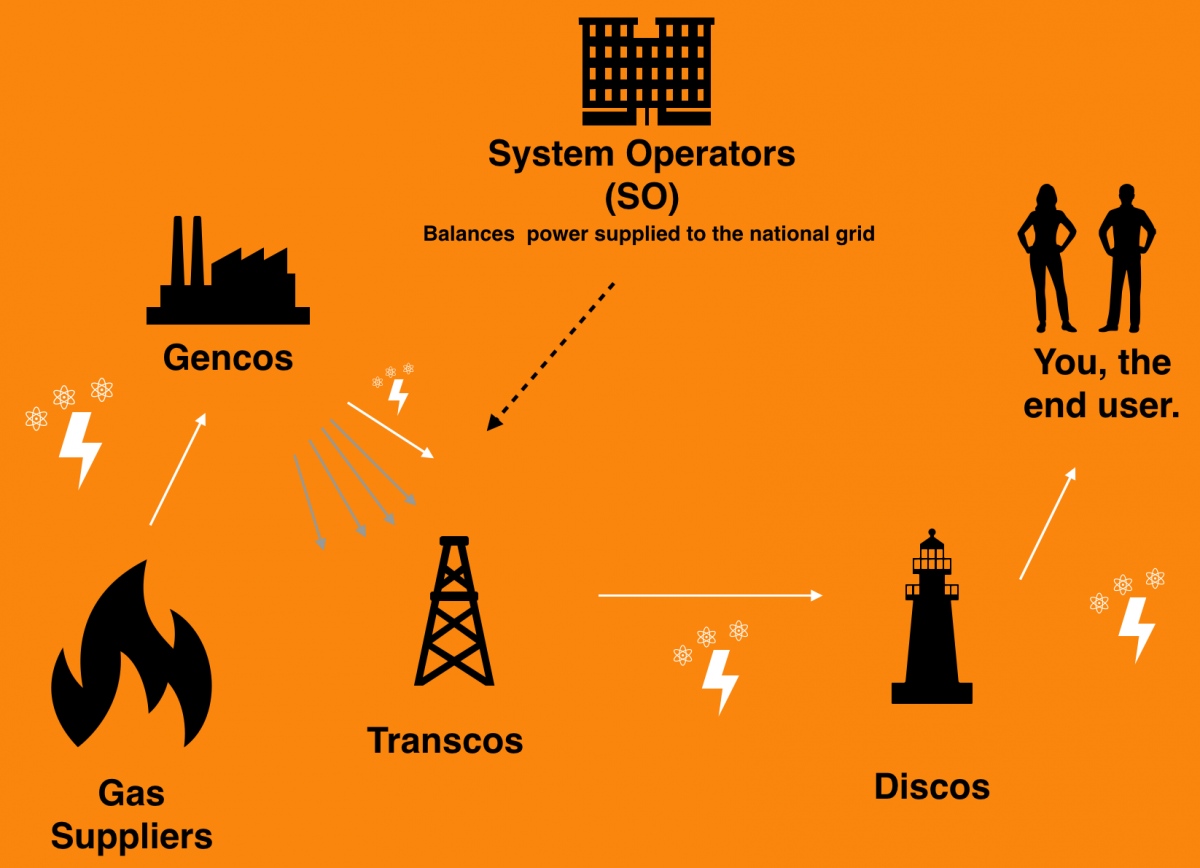
Nigeria Electricity Regulatory Commission (NERC)
This is the sole regulatory body responsible for managing the electricity sector. From setting tariffs to providing licenses, NERC is the single most important organization in the electricity sector. With that said, they play a major in ensuring adequate tariff levels are set for revenue generation.
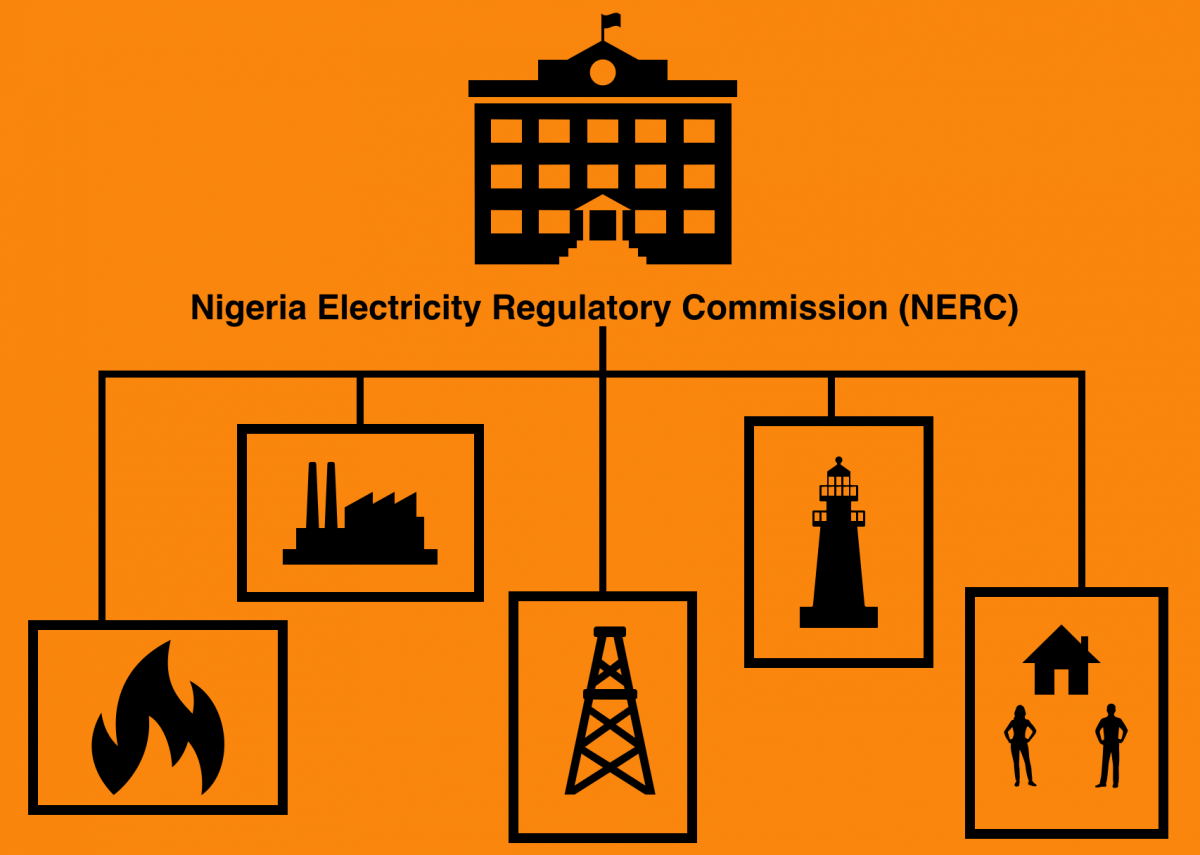
Ministry of Power
The Ministry of Power is a political body without direct power but holds influential power over the power industry. For example, the Ministry of Power cannot change the tariff, nor can it provide the license to a new generation company. It is a political office that helps coordinate efforts across the electrical industry in an attempt to influence change.
In an effort to produce electricity at a more appropriate price point, the Ministry of Power should consider influencing NERC to move to a cost-reflective tariff.
Conclusion
In order to successfully operate a business in the power industry, gaining an understanding of how the industry functions, as well as the influential entities present, is a necessity.
